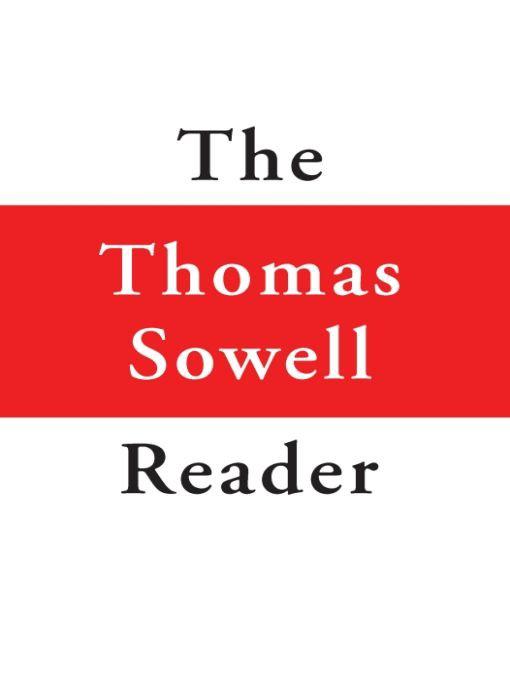
The Thomas Sowell Reader
- اطلاعات
- نقد و بررسی
- دیدگاه کاربران
نقد و بررسی

August 15, 2011
Prolific and award-winning economist Sowell presents an engaging and accessible collection of short essays culled from his books and columns. In his 30-some previous books, Sowell has addressed everything from social theory to political philosophy, and this selection offers a representative sampling that especially shines in its discussion of education and the academy. Criticizing antielitism in the educational system, he claims that students cannot all be taught at the same pace, unless “the pace is slowed down to accommodate the lowest denominator.” He convinces readers that “unusually bright children are too often treated like stepchildren by the American educational system,” blaming this on a “general hostility to anything that might be construed as intellectual elitism.” Sowell mingles anecdote with analysis, drawing upon his personal history to bolster his arguments. Recalling a research project he directed, for which he received money to hire a “ ‘minority’ professional,” he ruminates on how “minority” has become a “politically corrupted word.” The book concludes with a section titled “Random Thoughts,” filled with Sowell’s quotable quotes and adages: among them is “ideology is fairy tales for adults,” which could summarize the entire reader. Sowell’s careful explicating of and grappling with issues allow his thoughts to be clearly exhibited, understood, and welcomed. Even leftist thinkers will appreciate Sowell’s personal charm and intellectual rigor.

September 1, 2011
"Ideology is fairy tales for adults." Thus writes economist and conservative maven Sowell in a best-of volume shot through with...ideology.
Though he resists easy categorization, the author has been associated with hard-libertarian organizations and think tanks such as the Hoover Institution for most of his long working life. Here he picks from his numerous writings, which have the consistency of an ideologue—e.g., affirmative action is bad, period. It's up to parents, not society or the schools, to be sure that children are educated. Ethnic studies and the "mania for 'diversity' " produce delusions. Colleges teach impressionable Americans to "despise American society." Minimum-wage laws are a drag on the economy. And so on. Sowell is generally fair-minded, reasonable and logical, but his readers will likely already be converts to his cause, for which reason he does not need to examine all the angles of a problem. (If it is true that most gun violence is committed in households where domestic abuse has taken place, then why not take away the abusers' guns as part of the legal sentencing?) Often his arguments are very smart, as when he examines the career of Booker T. Washington, who was adept in using white people's money to advance his causes while harboring no illusions that his benefactors were saints. Sometimes, though, Sowell's sentiments emerge as pabulum, as when he writes, in would-be apothegms: "Government bailouts are like potato chips: You can't stop with just one"; "I can understand why some people like to drive slowly. What I cannot understand is why they get in the fast lane to do it." The answer to the second question, following Sowell, might go thus: because they're liberals and the state tells them to do it, just to get in the way of hard-working real Americans.
A solid, representative collection by a writer and thinker whom one either agrees with or not—and there's not much middle ground on which to stand.
(COPYRIGHT (2011) KIRKUS REVIEWS/NIELSEN BUSINESS MEDIA, INC. ALL RIGHTS RESERVED.)




دیدگاه کاربران